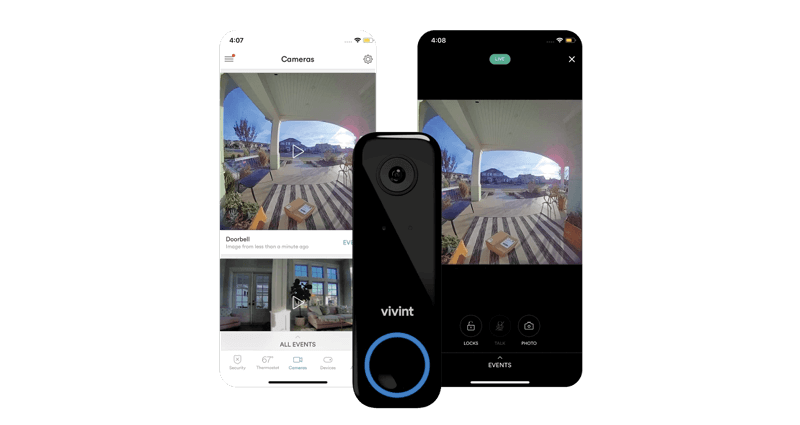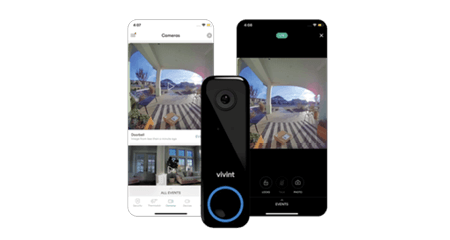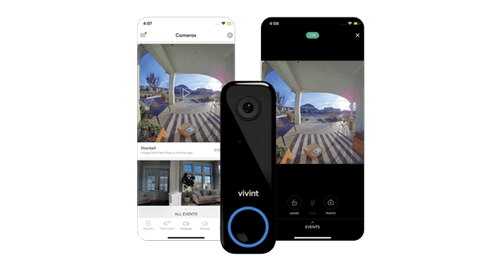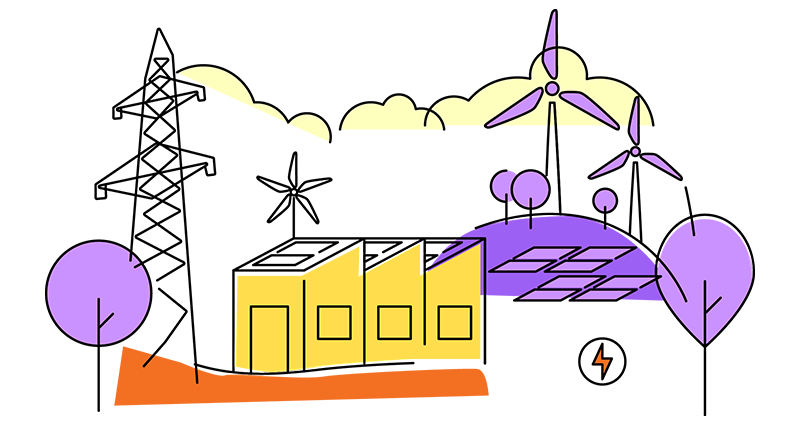What is prepaid electricity?
A prepaid electricity plan is similar to having a bank account dedicated to your electricity bill. As the name implies, you pay for your electricity beforehand and can reload money to your account whenever you like. These plans often come without the commitment of a contract or the expense of a deposit, and many offer a variable rate.
What is a postpaid or traditional contract plan?
With a postpaid or traditional contract plan, you will be billed for your usage after the fact, usually on a monthly basis. These plans can come with contracts and deposits and often offer a fixed energy rate.
Pros and cons of prepaid electricity
Prepaid Electricity is not for everyone. To help you decide if it’s right for you, we compiled a list of pros and cons.
Pros:
- Easier budgeting. You’re in complete control of how much you pay and when. You can make payments online or by phone at any time, and as long as you keep a positive balance in your account, the electricity keeps flowing.
- Easy alerts. You’ll receive text or email alerts when your account is running low, along with estimates of how many days your remaining balance will last.
- Detailed usage information. You’ll have online access to detailed information about your electricity consumption, which can help you develop strategies to further reduce your electricity costs.
- The advantage of variable rates. While high-demand seasons can increase variable rates, you’ll enjoy a reprieve with lower rates in cooler seasons. During these months, your payments will go further, and you’ll have room to save up for the rate increases. Cooler weather also makes it easier to engage in energy-saving habits, making it even easier to save.
- No deposits, no credit checks and no commitment. Best of all, prepaid electricity plans are quick and easy to set up, with no credit checks, deposits or contracts required. Simply open an account and add funds, and the electricity will flow.
Cons:
- Higher rates. When you’re evaluating the pros and cons of prepaid electricity, you’ll find that there are very few downsides. In most cases, the only downside to a prepaid plan is that the rate per kilowatt-hour (kWh) may be slightly higher than the rates on comparable traditional postpaid plans.
- The downside of variable rates. You may also run into more variable-rate prepaid plans than you would with traditional plans. With variable rates, your energy rate per kWh can change with the seasons, increasing during high-demand periods. That means during hot Texas summers, when everyone is blasting their AC, these seasonal rates could be much higher than desired, making it harder to stretch your dollar.
Who should get a prepaid electricity plan?
Here are some of the circumstances that make a prepaid electricity plan a perfect fit for you:
- You have bad credit or no credit. With post-paid electricity plans, some electricity providers may require deposits or refuse service if you have a low FICO credit score or if the National Consumer Telecom & Utilities Exchange (NCTUE) has records of late or unpaid utility bills. But with a prepaid electricity plan, credit checks won’t hold you back.
- If you have no credit, you might also find that electricity providers require a deposit for postpaid plans. A prepaid plan is a cheap and easy way to establish a record of timely payments, which can make those deposit requests disappear.
- You’re on a tight budget. Deposits, billing fees and the occasional sticker shock from big bills can make it difficult to keep the lights on if you’re low on funds. A prepaid plan lets you avoid unnecessary costs and big bills and allows you to easily track your usage and your budget.
- You’re a stickler for energy conservation. If you’re really trying to minimize your household electricity consumption, a pay-as-you-go plan can be a functional part of that strategy. You may be more aware of how much electricity you’re using with the help of alerts, real-time data and total control over your payment schedule.
- You’re on-the-go. Most post-paid plans require contract commitments of months or years. If you’re a frequent mover or if you have plans to relocate soon, a prepaid electricity plan can give you month-to-month flexibility.
Who should get a contract electricity plan?
For some people, a postpaid or contract electricity plan is a better fit for their lifestyle. Here are some situations in which a contract electricity plan is a better fit:
- You want to lock in a competitive fixed rate. If you want to take advantage of lower fixed rates in the marketplace, then locking in a contract electricity plan over multiple years could be a great fit for you.
- You crave stability and predictability. With a postpaid electricity plan, you pay for your usage after the fact at a set billing date every month. And when you factor in the low, competitive rate you locked in over multiple years, it's pretty easy to approximate what your bill will be each month. In addition, contract electricity plans free you from worry about constantly monitoring your usage and your account balance.
- You want another way to build your credit. While you can't impact your FICO score by paying your bills in full and on time, there are alternative credit score groups out there who take paying utility bills in full and on time into consideration when issuing credit.
- You or someone in your household has a critical care or chronic care condition as defined by your utility. If losing electricity service could result in a serious illness or a dangerous or life-threatening condition, then you are only eligible for a contract electricity service.
- You have a good credit history and can afford a deposit. Deposits are often required for starting a new utility service and can be 1-2 times the amount of a monthly bill.



































